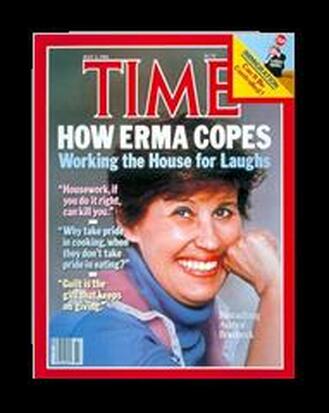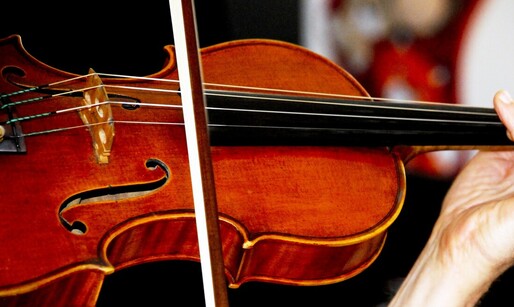all of the selves we Have ever been
 “Keep looking where the light pours in.” Morgan Harper Nichols Well, I passed the wellness exam-- and failed the mammogram. Things really got rolling a few days later during the ultrasound. The radiologist stood at my bedside as I asked some questions. While she was careful NOT to say what it was, she was very firm about what it was NOT. I left with an intuitive understanding that it was something. This would be confirmed soon enough by a pathologist. In the interim, I was referred to a surgeon, a brilliant and energetic young woman who loves science and trendy shoes. At our brief visit, she remained optimistic that it could still be nothing. Nonetheless, surgery was scheduled, even as I prepared for a biopsy the next morning. I left the surgeon’s office with a busy mind and a tight schedule. I was due at work shortly, not really enough time to settle in at home, and maybe not a good idea even if I had had the time. It seemed to me that an asiago cheese bagel was in order. I took the advice attributed to the early Greek physician Hippocrates, and I headed to my local Panera to fill his prescription: Let thy food be thy medicine… As it turned out on that day, my local Panera was not so much a dispensary as it was a most unusual monastery. In what would become a reversal of my misfortune, I found myself standing at a counter with the bread of life stacked on metal racks behind it. A holy man graciously took my order. Just as I was about to insert my debit card into the card reader, the monk said, “There will be no charge for you today.” “Why is that?” “It is Halloween.” And as he said this, he looked so deeply into my eyes that he seemed to take hold of me. So moved was I by his gaze that his eyes could have been the eyes of The One. And then he said, “God bless you," and the light poured in. While doctors had looked inside my body and proclaimed me ill, he looked inside my soul and proclaimed me blessed. I moved to a table where I enjoyed my bagel and counted my blessings, among them excellent health and good medical insurance, wonderful friends who infuse me with laughter, the company of countless women who have gone before me and those who travel travel with me now, the remarkable emerging science and technology that makes the treatments our mothers received seem barbaric and my own treatment seem like science fiction, a specialty breast cancer treatment center practically at my doorstep, and a lifetime grounded by a faith tradition promising that there is something greater than me, and that when this life is over, I will be gathered to my people. How lucky am I to live with so many resources and so much hope? Yes, the Paneran monk was a messenger: I am blessed. More to come. Of this I am sure.
0 Comments
This short story is dedicated to my dear friend known to all as Aunt Jean. She is by God-given nature, the funniest storyteller I know. She has a magical pair of slightly bent glasses that see the entire world tilted toward the hilarious. This story is a potpourri of the characters and happenings from her actual lived life. I played with the ending. Thanks for sharing your stories, Aunt Jean, and for a lifetime of friendship, a friendship that rose to every occasion, especially in the worst of times. You belong with Erma Bombeck in the Hysterical Society. **************************************************************************** Oh, how Mary wanted a lace mantilla for Christmas! Canon Law required Catholic women to cover their heads in church, and the lace mantilla was quickly becoming all the rage among the church-going women in Mary’s rural parish in the winter of 1960. At first, Mary was subtle in her request. At mass on Sundays she would whisper to her husband Rudy, “Oh, look at the new mantilla Jenny’s husband brought her from Spain! And doesn’t Agnes look lovely in her lace mantilla? Just like the Blessed Mother.” Rudy didn’t even look up. He owned and operated the local slaughterhouse and was first and foremost a butcher. His mind was always busy calculating the price of livestock and anticipating the special orders from his regular customers. Which cut of beef would Mrs. Shelton want for Christmas this year? She was always trying recipes for dishes he had never heard of. What on earth was cordoned blue chicken, and why was this woman taking cooking advice from a child named Julia? And that Davis family with its eight children always peppering him for the meat ends and asking for sale prices… Mary knew that Rudy worked hard and was a good provider. She accepted his role as the breadwinner, but, darn it, she was a partner in the family business as well as the bread maker and the one responsible for the family’s salvation. She’s the one who herded them off to church on time, him with starched shirt collar and folded cloth handkerchief, the twins in matching petticoats with starched netting that gave their Sunday dresses a fashionable flare. All Mary wanted was a lace mantilla. And she wanted to wear it to Christmas mass. Christmas came. Mary got a mixer. “What’s this?” she asked Rudy “A mixer.” “But I didn’t want tools, I wanted a lace mantilla!” “I don’t know nothing about lace mantillas.” That was the end of discussion. Mary knew it was pointless to persist. Unless she was talking about a cow’s innards, Rudy’s response was about as deep as he went. Not one to give up on such an important need, Mary scheduled herself an “appointment.” “You will have to take the twins with you to the livestock auction. I have an appointment.” Rudy did not even ask. While he could butcher an animal with his bare hands, he feared the details of a woman’s “appointment.” And so, on the day of the auction, with Mary already out of the house, Rudy put the twins into the back of the pickup truck and headed for the silent livestock auction. He hoped to get there early, scout out the livestock, and grab some good seats up front where the children might be entertained by the action. That evening when Rudy and the girls returned home from the auction, Mary was already at their farm completing evening chores. She had a new lace mantilla. Rudy had a new jackass. The winning bid had been made when one of the twins raised her hand to slap her bored and rambunctious sister upside the head. The girls named their new purchase “Taffy the Jackass.” The minute Taffy the Jackass bucked her way off the truck it became clear the animal was deranged. She immediately began terrorizing the family and the neighborhood. Her size and strength threatened the lives of small children, toppled fences, and trampled gardens. She ran away frequently and refused to come home. The county sheriff became a frequent visitor. The term “Taffy Pull” took on new meaning in this picturesque farm community. It consumed every spare minute of family time and some of the neighbors’--pulling and coaxing the stubborn jackass from one spot to another. As all good Catholic mantilla-wearing women do, Mary feared that Taffy the Jackass was punishment for wanting something for herself—for coveting that lace mantilla. Humbled by a jackass, Mary had seen the light and done her penance. Now, Taffy the Jackass had to go. A neighbor woman who also wanted a lace mantilla agreed to take Taffy if Mary would throw the lace mantilla into the deal. The neighbor knew Taffy, and so without shame or guilt, Mary sealed the deal. Gone was the lace mantilla. Better yet, gone was Taffy. Peace was restored, and so was Mary’s soul. The next Christmas Mary requested nothing. And Rudy didn’t ask. He gave Mary some white doilies his mother had crocheted. Mary accepted the doilies, put one on her head and wore it to church. This move by Mary is said to have launched the chapel cap craze that continued until 1983 when the Catholic Church finally dropped the head covering requirement for women. Hail Mary!  Except for a stint in the army, Uncle Lloyd spent his entire life on the family farm. He remained firmly attached to his caveman roots and his family ancestry working the land. This led to some peculiarities of manner and speech. For instance, when discussing if he might wish to donate some of the family heirlooms to the local Historical Society, Lloyd repeatedly referred to the organization as the Hysterical Society. That’s just the way the word came out when he spoke. No point in correcting him. He would not have heard the distinction. If Uncle Lloyd had lived to see the COVID pandemic, we might have given him some extra credit for his prescient prognostication. Panic-stricken, agitated, frantic, distraught, beside ourselves—all manner of hysteria applied. My one retreat during that time was the library. Even when the doors closed during the worst of the pandemic, the drive-through remained open. It was during that time that I reconnected with a long-gone but much loved member of that other Hysterical Society. I write today to honor her: Happy Birthday, Erma Bombeck! Even as a kid, I loved the newspaper. Not much for the comic section, I did try to peer into my future with regular readings of my daily horoscope. I practically earned an M.D. from the Ask the Doctor column, and I built a solid foundation for my future as a therapist by reading Dear Abby, but my favorite column was At Wit’s End by Erma Bombeck. While she was facing middle age, I was facing middle school. At a time when people did not “air their dirty laundry in public,” she made a living from it – a middle age, middle class porn star to the homemaking set. She talked about things we experienced but no one else talked about openly, especially not in front of children. It was a glimpse into the foibles of family life in the suburbs and a sneak peek into the private parts of a grown up life. During the COVID pandemic, as I was at my own wit’s end, I borrowed some of her old books from the library. The titles alone were hilarious: The Grass is Always Greener Over the Septic Tank, Motherhood: The Second Oldest Profession, The Ties that Bind and Gag, When you Look Like Your Passport Photo, It’s Time to go Home, and I Lost Everything in the Post-Natal Depression, among others. As I read and laughed out loud, I was reminded that so many “revolutions” have come and gone. Issues that once rocked the country came and went, and we remained standing. The women’s movement, including sexual freedom and birth control, and the mass migration of families to the fresh and growing suburbs were all new to Erma and her generation. While it was simply the state of things when I was born, I was reminded that it was all new and unnerving to the folks who came before me. They adapted. As businesses closed and workers fled to their home offices, and children went to school at their dining room tables dressed their pajamas, Erma gave me some perspective: we have been through revolutionary changes before; we will get through this one, too. What a gold mine Erma would have unearthed from our pandemic experience! She knew that humor mixed with love was the antidote to just about everything, and she instinctively knew just the right mix of each to keep us laughing and healing without hurting ourselves or others. Nietschze wrote that “in heaven all of the interesting people are missing.” I’m pretty sure he is wrong, at least since 1996. Maybe what makes heaven heaven is that it is full of all the people who died laughing. See you there, Erma.  When I was in third grade, I gave my teacher a Valentine’s Day gift. It was a heart-shaped box filled with assorted Russell Stover chocolates. I carried it to school so tenderly that an observer might have thought it was an actual beating heart about to be transplanted into the body of someone I loved. Truth be told, my own heart was torn that day. I was filled with pride and excitement at being able to give such a spectacular gift. But my heart was also overflowing with an amount of envy I could barely contain. I wrestled with the devil when it came time to part with the gift. It was like holding the winning lottery ticket and having to hand it to someone else. Oh, how I wanted that box of chocolates! A child would have never received such a Valentine back then. Gifts like that were reserved for adults only. That blessed grown-up might offer a lucky child the opportunity to pick “just one” from the box. The weight of such a choice was enormous. A child might pick a sweet, delicious chocolate-covered cherry, or find herself biting into a coffee cream as bitter as her disappointment. All that third-grade day, I wondered if I would EVER receive such a valentine. It had nothing to do with finding romance, love, or even chocolate. I also coveted that box! A heart-shaped box?! It defied gravity and all of the other laws of nature. While it was reported that good things came in small packages, I was pretty sure that the best things came in heart-shaped boxes trimmed with ruffled red ribbon. Obviously, the giving that day was more about me than about the teacher. At best I was showing off, at worst, I was brimming with envy. But as all children do, I was learning the life lessons that come so slowly, lessons about giving and receiving, about generosity and selfishness, about desire and self-control, about what lasts and what doesn’t. Forrest Gump said, ‘Life is like a box of chocolates; you never know what you’re going to get.” Later in life I would learn that sometimes we can reduce the risk and increase the satisfaction by locating the key that is printed somewhere on each box of chocolates. It is possible to make better choices when you are a grown-up and know how things work. Thankfully, giving is no longer about me and my own desires. My needs are met, and my heart is full, not with envy, but with a desire to win the lottery and pass it on. May your hearts be full today and all of your needs met. Choose wisely and remember there is a key on every box of chocolates. Happy Valentine’s Day! I love you all. They paved paradise and put up a parkin' lot With a pink hotel, a boutique, and a swingin' hot spot… They took all the trees, and put 'em in a tree museum And they charged the people a dollar and a half to see them Don't it always seem to go That you don't know what you got till it's gone They paved paradise, and put up a parking lot… As I pulled into the parking lot of a large local shopping center, an earworm wriggled to life inside my head: “They paved paradise and put up a parking lot…” an old Joni Mitchell hit. I smiled to myself at the memory and the words, and I thought it might be time to hit the pavement at my favorite tree museum, The Franklin Park Conservatory. I went into Staples and purchased ink cartridges for my home printer. Finished with the errand, I stepped to the automatic exit doors. As they slid open, I heard it. Like a graceful flock of birds, the notes rose on the air and danced in the twinkling and brilliant sunlight of an unseasonably warm winter day. I was propelled in the direction of the sound and the light. Somewhere nearby, a violin played Leonard Cohen’s Hallelujah. The music was so moving that I felt the urge to both weep and dance at the same time. I was not alone in this. At that very moment, the doors of Target slid open and a tiny preschooler stepped onto the sidewalk and immediately froze in his tracks. His mother tugged on his arm, but he was there to stay, eyes wide and pointed in the direction of the music. Surely, the child saw it for the wonder that it was. We both stared at a man standing next to a portable speaker. We watched as he swayed and slid the slender bow across the strings of his violin. The instrument’s case lay open beneath a sign sharing news of the man’s financial hardships--his need to pay his rent and support two children. As I dug deep inside my purse for cash, I heard a couple walking by saying it was probably a scam. I was taken aback by the irony of the situation: people flocking to this shopping center to purchase without question food, pharmaceuticals, and other merchandise from companies that overcharge us, produce products that harm us, and create waste that destroys our environment, yet this gentle man producing beautiful music was suspect. His performance was just too foreign in this land of parking lots, boutiques, pink hotels, and swinging hot spots. In the beauty of the moment, I pledged my allegiance to the wide-eyed child still capable of trust and wonder. I took what cash I had and dropped the folded bills into the open violin case. “The world needs more music,” I said. The violinist nodded his thanks and continued to play. Filled with anticipation each time I step out onto a parking lot, I bring cash…and I listen. I hope to hear the stop-you-in-your-tracks sounds of that magic violin. Though I wish him well and that all of his needs will be met, I pray this street musician never stops playing. The world needs more music and a little bit of paradise in every paved parking lot. |
AuthorLilli-ann Buffin Archives
July 2024
Categories
All
|

 RSS Feed
RSS Feed